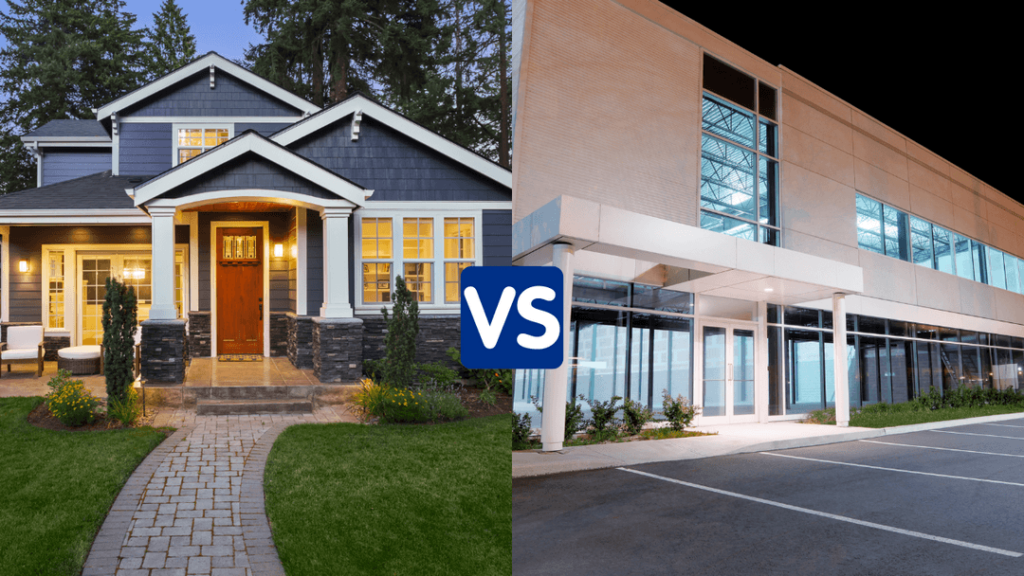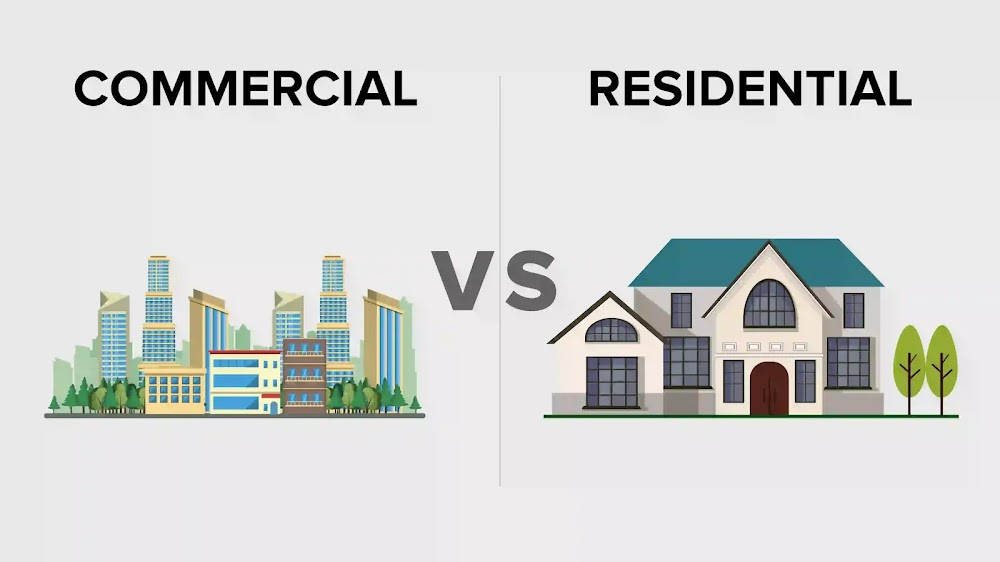Introduction to Real Estate Investment
Real estate investment can be a thrilling journey, whether you’re drawn to the bustling world of commercial properties or the cozy appeal of residential homes. Each avenue offers unique opportunities and challenges that can shape your financial future. As you navigate this terrain, understanding the differences between commercial vs. residential real estate becomes crucial. Are you ready to dive into the pros and cons of each type? Let’s explore how these investments stack up against one another, helping you make informed decisions that align with your goals and risk tolerance. The world of real estate is waiting for you—let’s uncover its secrets together!
Pros and Cons of Investing in Commercial Real Estate
Investing in commercial real estate can be a lucrative venture, attracting many investors seeking higher returns. One of the primary advantages is the potential for significant cash flow. Commercial properties often have longer lease terms, providing stable income over time.
Another benefit is appreciation potential. As economies grow, commercial properties can increase substantially in value. This growth can lead to impressive profits when it’s time to sell.
However, investing in commercial real estate comes with risks. The market can be volatile and less predictable than residential markets. Additionally, vacancy rates may fluctuate more dramatically due to economic downturns or changes in demand.
Managing these properties typically requires more expertise and effort compared to residential investments. Maintenance costs and tenant management might also be more complex given the diverse needs of businesses versus individual renters.
Factors to Consider when Investing in Commercial Real Estate
When venturing into commercial real estate, location is paramount. A prime area attracts tenants and boosts property value over time. Researching local market trends can offer insights into future growth potential.
Next, consider the type of property you’re interested in: office buildings, retail spaces, or industrial sites all present unique challenges and opportunities. Each has different tenant needs and operational costs that can impact your investment’s success.

Understanding financing options is crucial as well. Commercial properties often require larger down payments than residential ones. Familiarize yourself with various loans available to make informed decisions.
Don’t overlook the importance of property management. Whether you handle this personally or hire a firm, effective management is key to maintaining tenant satisfaction and preserving asset value in the long run.
Pros and Cons of Investing in Residential Real Estate
Investing in residential real estate offers several appealing advantages. One of the primary benefits is stable cash flow. Rental properties often provide consistent monthly income, making them attractive to investors seeking reliable returns.
Additionally, residential properties tend to appreciate over time. Many homeowners are eager to find their dream home, which can drive up property values in desirable areas.
However, there are drawbacks as well. Managing tenants and maintenance issues can be time-consuming and stressful. Vacancies may also occur unexpectedly, impacting your income significantly.
Another concern is market fluctuations that could affect rental demand or property value. Economic downturns often lead to increased vacancies and lower rental prices.
While investing in residential real estate has its perks, it’s crucial for potential investors to weigh these pros against the possible challenges before diving into this sector.
Factors to Consider when Investing in Residential Real Estate
When considering residential real estate, location is paramount. The neighborhood’s desirability directly impacts rental income and property value. Research local amenities, schools, and public transport options.
Next, evaluate the property type. Single-family homes might offer stability while multi-family units could yield higher returns but come with added management responsibilities.
Understanding market trends is crucial as well. A booming area can promise growth, while declining neighborhoods may spell trouble for your investment.
Don’t overlook financing options either; mortgage rates can significantly affect cash flow. Assess your budget thoroughly to avoid overextending yourself.
Consider the potential for renovations or improvements. Properties needing updates might offer great deals but require additional capital and effort to enhance profitability down the line. Each of these factors plays a critical role in ensuring a successful residential real estate investment journey.
Choosing the Right Type of Investment for You
When it comes to choosing the right type of investment, self-reflection is key. Think about your financial goals and risk tolerance. Are you aiming for long-term growth or steady cash flow?
Consider your lifestyle too. Do you want hands-on management, or would you prefer a more passive approach? Commercial properties often require more involvement but can yield higher returns.
On the other hand, residential real estate might offer a steadier income with less volatility. Assess how much time and effort you’re willing to invest, as this will guide your decision.

Research local markets thoroughly. Understand trends in both commercial and residential sectors. Each market has unique characteristics that could sway your choice significantly. Choose wisely based on what aligns best with your personal circumstances and aspirations.
Frequently Asked Questions
When venturing into the world of real estate investment, questions often arise. Understanding these common queries can help shape your decision-making process.
What is the main difference between commercial and residential real estate?
Commercial real estate typically involves properties used for business purposes, such as office buildings or retail spaces. Residential real estate focuses on homes where people live. Each type caters to different markets and demands distinct management strategies.
Which type of real estate offers higher returns?
Generally, commercial properties have the potential for larger returns due to longer lease terms and higher rental income. However, they also come with increased risks and require more capital upfront compared to residential investments.
Is it easier to finance commercial or residential properties?
Financing can vary significantly between the two types. Residential loans are often easier to obtain due to lower down payment requirements and more favorable interest rates. Commercial financing usually involves stricter underwriting standards but may offer better long-term benefits if managed wisely.
How much time do I need to invest in managing my property?
Both types of investments demand attention, but residential rentals might require more day-to-day involvement due to tenant turnover and maintenance issues. Commercial properties tend to have longer leases which can mean less frequent management tasks once established.
What market trends should I watch when choosing an investment type?
Economic factors play a crucial role in both sectors. For commercial real estate, look at employment rates and local business growth; for residential investments, focus on housing trends like affordability and population growth within specific areas.
As you explore your options in this dynamic field, addressing these frequently asked questions will empower you with knowledge necessary for making informed decisions about your investment journey in commercial vs. residential real estate.











